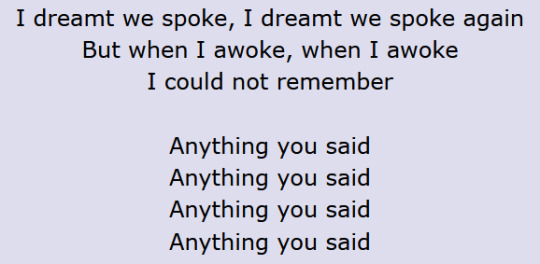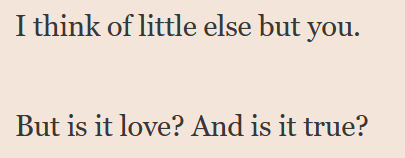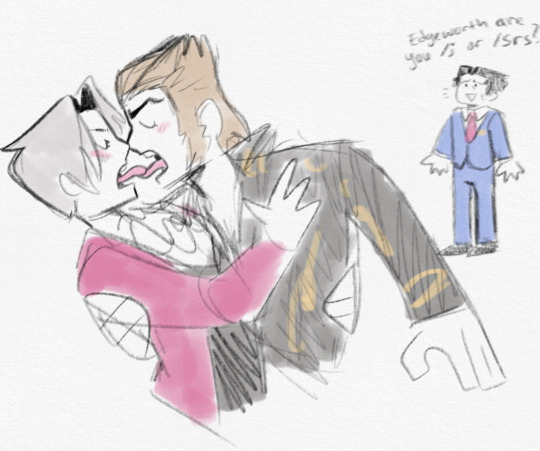#about joan
Explore tagged Tumblr posts
Text



ABOUT JOAN 2022, dir. Laurent Larivière
86 notes
·
View notes
Text



Joan Crawford in HUMORESQUE (1946) dir. Jean Negulesco
#filmedit#filmgifs#filmblr#classicfilmedit#classicfilmblr#oldhollywoodedit#classicfilmsource#cinemaspast#moviegifs#ladiesofcinema#tusercamile#userrutledge#joan crawford#humoresque#1946#1940s#🤓#*jc#*mygifs#IT'S JOAN CRAWFORD LOCKDOWN MONTH!!!#i will never shut up about joan in glasses...#joan crawford jean negulesco and the screenwriters of this film did this specifically for me
1K notes
·
View notes
Text
Eddie posts a TikTok that was filmed in almost complete darkness late at night. You can just barely make out the angles of his face in the moonlight when he’s like, “Run that question back by me, Stevie.”
Steve: Do you think our pets have low self-esteem?
Eddie: Right, that’s the question.
Eddie: And the answer is no. They got high self-esteem like their dad.
Steve: But I’m insecure!
Eddie: I was talking about me.
Eddie: I preform on stage and am married to one of the hottest guys I know.
Steve:
Steve: Who’s the other hot guy you know?
Eddie: You, ten years ago.
Steve:
Steve, heavy consideration: That’s a good answer.
#their pets are not - in fact - insecure#Ozzy kills it everyday as a service dog and he knows it#and Joan thinks when you say ‘Jesus’ you mean her#(one of her main hobbies is scaring the shit out of Eddie so often when some did say Jesus Christ they were talking about her)#these are normal conversations they have when neither can sleep for a few days#eddie munson tiktok saga#eddie munson#steve harrington
2K notes
·
View notes
Text

#stargate#this is my formal announcement that I’ve fallen ass over elbows into sg1 and I do NOT plan to return#just started season 2 I’m in love how have i gone this long wo knowing about this show#joan watches stargate
1K notes
·
View notes
Text

je n'ai pas peur, je suis née pour faire ça
#fate grand order#jeanne d'arc#jeanne alter#jalter#fgo#fanart#i will always support a vegenful joan darc even if the real historical figure was very much accepting of her fate#although one just wonders if she was really. idk i think about joan darc a bit too often compared to the normal person#it disappointed me that in fate jeanne alter is just an oc with jeannes name instead of being like#a manifestation of jeannes anger and betrayal (which are completely justified given the circumstances)#anyways#the caption means “i am not afraid; i was born to do this” in shitty french probably
1K notes
·
View notes
Text


they should've kissed in this movie gdi. they had such good chemistry.
#island in the sun (1957)#joan fontaine#harry belafonte#roman does art#pls picture me grabbing my screen and yelling when they DIDN'T kiss at the end#I was clutching my pearls at how much they wanted to kiss each other stupid while drinking from that coconut#like hello?????????????? kiss about it???????????????????
580 notes
·
View notes
Text









i think i loved you, but i guess i'll never really know
joan tierney / death cab for cutie / sylvie baumgartel / the crane wives / @araekni / khalid hosseini / lev st valentine / wendy cope / richard siken (reordered)
#web weaving#joan tierney#death cab for cutie#sylvie baumgartel#the crane wives#araekni#khalid hosseini#lev st valentine#wendy cope#richard siken#love#loss#grief#it's about. not knowing if it ever really was love. and not having the time to figure it out#do i really love you or do i love the memory of you. did i really love you. was it just love or Love#i didnt know then and now i will never know and every night i am dancing with your ghost in the hope that one day it will tell me
3K notes
·
View notes
Text

#needle knight leda#elden ring#will let it marinate here too until I finish it… someday#I’ve been thinking about Leda and Joan of Arc a lot#but I don’t know how ethnical it is to draw parallels
213 notes
·
View notes
Text





JOAN BAEZ and BOB DYLAN during THE ROLLING THUNDER REVUE TOUR
"Any day now, any day now I shall be released."
#eye twitching as an involuntary reaction to bob dylan talking about joan baez#joan baez#bob dylan#rolling thunder revue#1970s
211 notes
·
View notes
Text




ABOUT JOAN 2022, dir. Laurent Larivière
35 notes
·
View notes
Text
A central element of the myth of [Eleanor of Aquitaine] is that of her exceptionalism. Historians and Eleanor biographers have tended to take literally Richard of Devizes’s conventional panegyric of her as ‘an incomparable woman’. She is assumed to be a woman out of her time. […] Amazement at Eleanor’s power and independence is born from a presentism that assumes generally that the Middle Ages were a backward age, and specifically that medieval women were all downtrodden and marginalized. Eleanor’s career can, from such a perspective, only be explained by assuming that she was an exception who rose by sheer force of personality above the restrictions placed upon twelfth-century women.
— Michael R. Evans, Inventing Eleanor: The Medieval and Post-Medieval Image of Eleanor of Aquitaine
The idea of Eleanor’s exceptionalism rests on an assumption that women of her age were powerless. On the contrary, in Western Europe before the twelfth century there were ‘no really effective barriers to the capacity of women to exercise power; they appear as military leaders, judges, castellans, controllers of property’. […] In an important article published in 1992, Jane Martindale sought to locate Eleanor in context, stripping away much of the conjecture that had grown up around her, and returning to primary sources, including her charters. Martindale also demonstrated how Eleanor was not out of the ordinary for a twelfth-century queen either in the extent of her power or in the criticisms levelled against her.
If we look at Eleanor’s predecessors as Anglo-Norman queens of England, we find many examples of women wielding political power. Matilda of Flanders (wife of William the Conqueror) acted as regent in Normandy during his frequent absences in England following the Conquest, and [the first wife of Henry I, Matilda of Scotland, played some role in governing England during her husband's absences], while during the civil war of Stephen’s reign Matilda of Boulogne led the fight for a time on behalf of her royal husband, who had been captured by the forces of the empress. And if we wish to seek a rebel woman, we need look no further than Juliana, illegitimate daughter of Henry I, who attempted to assassinate him with a crossbow, or Adèle of Champagne, the third wife of Louis VII, who ‘[a]t the moment when Henry II held Eleanor of Aquitaine in jail for her revolt … led a revolt with her brothers against her son, Philip II'.
Eleanor is, therefore, less the exception than the rule – albeit an extreme example of that rule. This can be illustrated by comparing her with a twelfth century woman who has attracted less literary and historical attention. Adela of Blois died in 1137, the year of Eleanor’s marriage to Louis VII. […] The chronicle and charter evidence reveals Adela to have ‘legitimately exercised the powers of comital lordship’ in the domains of Blois-Champagne, both in consort with her husband and alone during his absence on crusade and after his death. […] There was, however, nothing atypical about the nature of Adela’s power. In the words of her biographer Kimberley LoPrete, ‘while the extent of Adela’s powers and the political impact of her actions were exceptional for a woman of her day (and indeed for most men), the sources of her powers and the activities she engaged in were not fundamentally different from those of other women of lordly rank’. These words could equally apply to Eleanor; the extent of her power, as heiress to the richest lordship in France, wife of two kings and mother of two or three more, was remarkable, but the nature of her power was not exceptional. Other noble or royal women governed, arranged marriages and alliances, and were patrons of the church. Eleanor represents one end of a continuum, not an isolated outlier.
#It had to be said!#eleanor of aquitaine#historicwomendaily#angevins#my post#12th century#gender tag#adela of blois#I think Eleanor's prominent role as dowager queen during her sons' reigns may have contributed to her image of exceptionalism#Especially since she ended up overshadowing both her sons' wives (Berengaria of Navarre and Isabella of Angouleme)#But once again if we examine Eleanor in the context of her predecessors and contemporaries there was nothing exceptional about her role#Anglo-Saxon consorts before the Norman Conquest (Eadgifu; Aelfthryth; Emma of Normandy) were very prominent during their sons' reigns#Post-Norman queens were initially never kings' mothers because of the circumstances (Matilda of Flanders; Edith-Matilda; and#Matilda of Boulogne all predeceased their husbands; Adeliza of Louvain never had any royal children)#But Eleanor's mother-in-law Empress Matilda was very powerful and acted as regent of Normandy during Henry I's reign#Which was a particularly important precedent because Matilda's son - like Eleanor's sons after him - was an *adult* when he became King.#and in France Louis VII's mother Adelaide of Maurienne was certainly very powerful and prominent during Eleanor's own queenship#Eleanor's daughter Joan's mother-in-law Margaret of Navarre had also been a very powerful regent of Sicily#(etc etc)#So yeah - in itself I don't think Eleanor's central role during her own sons' reigns is particularly surprising or 'exceptional'#Its impact may have been but her role in itself was more or less the norm
426 notes
·
View notes
Text
people being mean to george russell should consider their words carefully because everything he says becomes real and his actions change the course of fate
#this is me making everything that happened at austin about him but in a positive way#hes like joan of arc. to me. suffering in the merc garages#hazel.txt#f1
263 notes
·
View notes
Text
People have spent so much time fleshing out random background male characters and so for feminism I am going to give one of DC's under appreciated female characters this treatment . I am absolutely fascinated by Joan Garrick as a character. DC is not. But who am I to let that stop me.
So what are some things we know about Joan Garrick (née Williams). One is that she met Jay Garrick when they were both students at college. More potential context was given by Millar and Morrison in the iconic Jay focused Flash (vol 2) #134. Here we learn that at the present time she is teaching microbiology and based on the fact that in my experience a specific microbiology subject is more common in university and she's heading in for specific classes not the school day I can infer she is a lecturer/professor. These few facts paint a picture of an awesome and boundary breaking woman in her own right.
We can assume she was in college in the 1930s. This makes sense. After all the 30s was the first generation where (almost entirely white and middle class) women attended colleges in greater numbers and with more social acceptance then before. They became symbols of newfound female independence and education. But at the same time they faced a lot of obstacles , particularly in co-ed institutions like Midwestern University. She still had to navigate her way through a very male dominated institution that did not take her seriously if they wanted her to be there at all. Along with the change in female education came cultural backlash both within and outside the academy. Misogynistic (and racist) detractors viewed female higher education as frivolous, unsuitable for women's 'fragile physiology' and even saw it as the 'suicide' of the middle-class white American family. Yeah these people were the fucking worst. Anyway, being a female student at a university in that era meant dealing with and overcoming all kinds of bullshit from exclusion to outright harassment (even more than it does now).
And then there is the fact that she apparently studied biology (or microbiology more specially) in a time where most women pursued degrees in teaching or nursing (if they planned to use it vocationally) or liberal arts (if they did not). Women were actively discouraged from taking science courses and Joan would have been trying to enter an even more hostile boys club whilst fighting against even greater social pressure. But despite it all she seemingly did succeed and presumably help break barriers for women in science which is awesome.
And we can see this refusal to back down in her personality. Joan's kindness is matched by her tenacity and her 'do first, ask for permission later' personality, which whether forged through her experiences in academic or before-hand helped her persevere overcome the many obstacles she would have faced. She's an absolute badass.
Now this is not strictly relevant but she also knew Jay was the flash the whole time which is really sweet. I personally like to think she figured it out because he kept asking her really specific questions about human metabolism and the like (biology seemingly is Jay's scientific blindspot) and she put two and two together. Also he just innately trusts her with his secret which is cute considering how much secret identity drama silver age couples went through.
#this is a long one#but someone has to care too much about random female characters and that person is me#also I have only read some golden age Joan content so I might have missed some stuff#but also I can change things from the golden age if I want to because everyone else has#Joan garrick#jay garrick#flash fam#the flash#dc#dc comics#my meta#I should start tagging this
171 notes
·
View notes
Text

"That night two monsters emerged from the clinic"
Happy Spooky Month. Had to commemorate it by drawing out my interpretation of how Ch4 went for my (Hardcore Mode) Reesemancer Character Wren
Once again thanks to @blacktabbygames for making Scarlet Hollow, you guys have single handedly saved my creativity
#scarlet hollow#scarlet hollow spoilers#reese kelly#joan kelly#wren scarlet#horror art#horror comic#monster#winkdraws#comic#spooky#cw implied character death#don't tag with 'this is my character' or 'this is how my character reacted'#this is a comic about my OC pls respect that
222 notes
·
View notes
Text

#doctorsiren#ace attorney#phoenix wright#miles edgeworth#shi long lang#ace attorney fanart#langworth#doodle#I’m reposting this one without the Your New Boyfriend art#because y’know all the stuff about That Guy 💀💀💀💀#but the other post still exists#I just thought this would be funny as its own post too#even though I drew this months ago#I’m still cackling over my use of Joan and JFK’s goofy ahh kissing
421 notes
·
View notes

